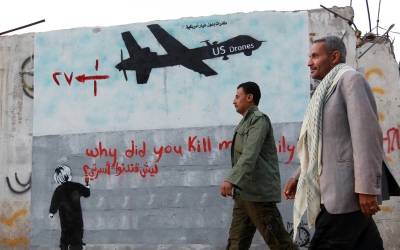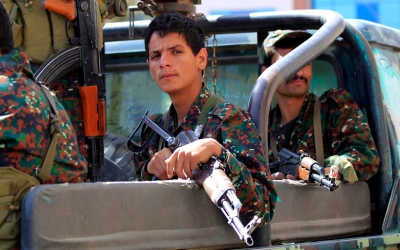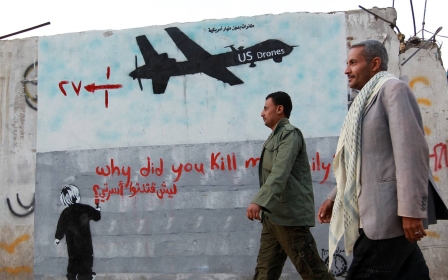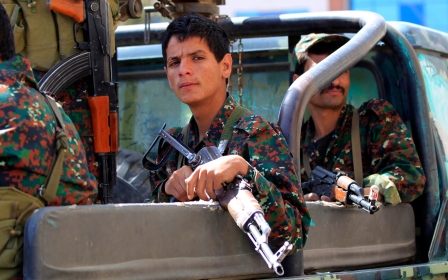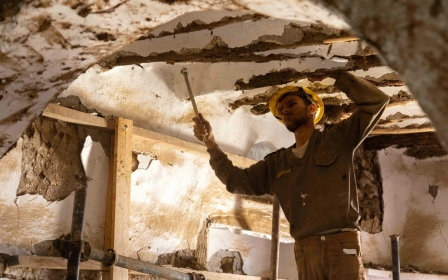Yemen president cedes powers to council ahead of Houthi negotiations
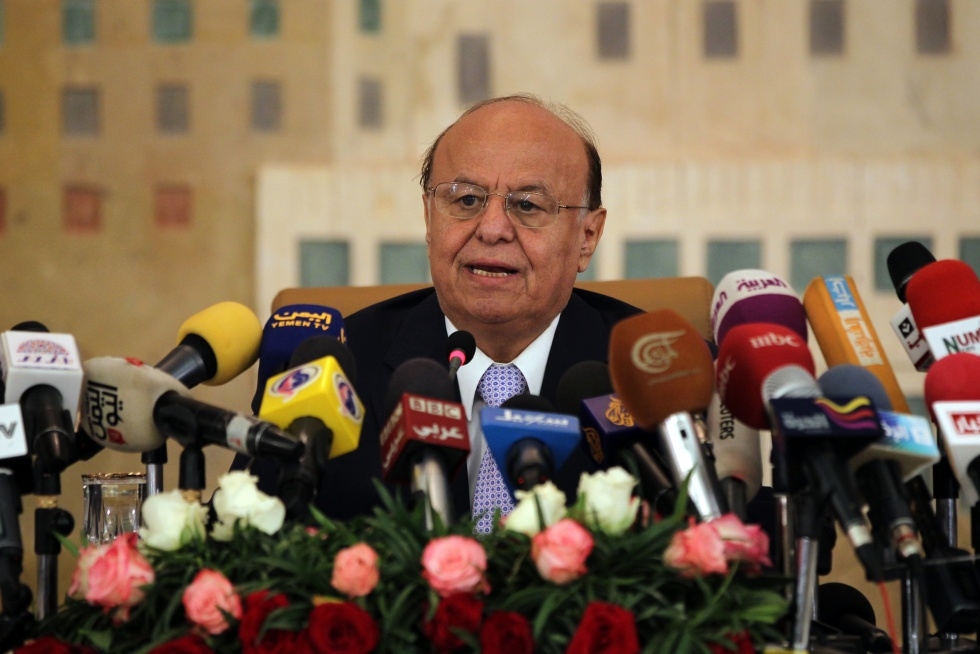
Yemen's president dismissed his controversial deputy on Thursday and delegated his own powers to a presidential council in a move backed by Saudi Arabia, removing some obstacles to UN-led efforts to revive negotiations to end the seven-year war.
Riyadh announced $3bn in financial aid to the Saudi-backed government following the announcement by President Abd Rabbuh Mansour Hadi. It also called for talks with the Houthis, de facto authorities in the north, who have been battling a Saudi-led coalition.
In a major breakthrough, Yemen's warring sides agreed to a two-month truce that began on Saturday, the first since 2016.
Dismissed Vice President Ali Mohsen al-Ahmar is resented by the Houthis for past military campaigns in their northern stronghold and by southerners for his leading role in the 1994 north-south civil war.
"I irreversibly delegate to the Presidential Leadership Council my full powers in accordance with the constitution and the Gulf Initiative and its executive mechanism," Hadi said on state television.
His government was ousted from the capital, Sanaa, by the Houthis, who are supported by Iran, in late 2014.
Saudi Arabia called on the council to "start negotiations with the Houthis under United Nations auspices for a final and comprehensive solution".
'Final political solution'
The new leadership council, made up of a chair and seven deputy chairmen, will be led by Rashad al-Alimi, who enjoys Saudi support and has a close relationship with the Islah party, a major political grouping.
Deputy chairs include the leader of southern separatist group, the Southern Transitional Council, Aidarous al-Zubaidi, who is backed by the United Arab Emirates (UAE), Reuters reported.
Hadi said the council would "negotiate with the Houthis to reach a ceasefire all over Yemen and sit at the negotiating table to reach a final political solution".
The formation of the council represents "the most consequential shift in the inner workings of the anti-Houthi bloc since the war began", Peter Salisbury, senior Yemen analyst for the International Crisis Group, said on Twitter.
But he cautioned that implementing the arrangement would be "complicated to say the least".
Saudi Arabia and coalition partner the UAE will each inject $1bn into Yemen's central bank and the kingdom will grant an additional $1bn for petroleum products and development, a statement on Saudi state media said.
'Significant reduction of violence'
The war has killed hundreds of thousands of people and devastated the economy, leaving 80 percent of the population of some 30 million people reliant on aid.
Riyadh, which last deposited funds into the Aden-based central bank in 2018, has struggled to exit the costly and unpopular conflict, which is widely seen in the region as a proxy war between Saudi Arabia and Iran.
Hadi took the helm of a crumbling Yemeni state in 2012 in a political transition plan backed by Gulf states after Arab Spring protests in 2011 that brought down President Ali Abdullah Saleh.
The Houthis say they are fighting corruption and the Saudi-led "aggression".
The United Nations is pushing for inclusive political negotiations to end the conflict in which several Yemeni factions are vying for power.
A UN donors conference this month raised less than a third of its $4.27bn target, prompting dark warnings for a country where 80 percent of the population depends on aid.
The UN special envoy for Yemen, Hans Grundberg, said on Wednesday that there had been a "significant reduction of violence" since the truce took effect but both sides have accused each other of minor breaches of the ceasefire.
Middle East Eye propose une couverture et une analyse indépendantes et incomparables du Moyen-Orient, de l’Afrique du Nord et d’autres régions du monde. Pour en savoir plus sur la reprise de ce contenu et les frais qui s’appliquent, veuillez remplir ce formulaire [en anglais]. Pour en savoir plus sur MEE, cliquez ici [en anglais].


